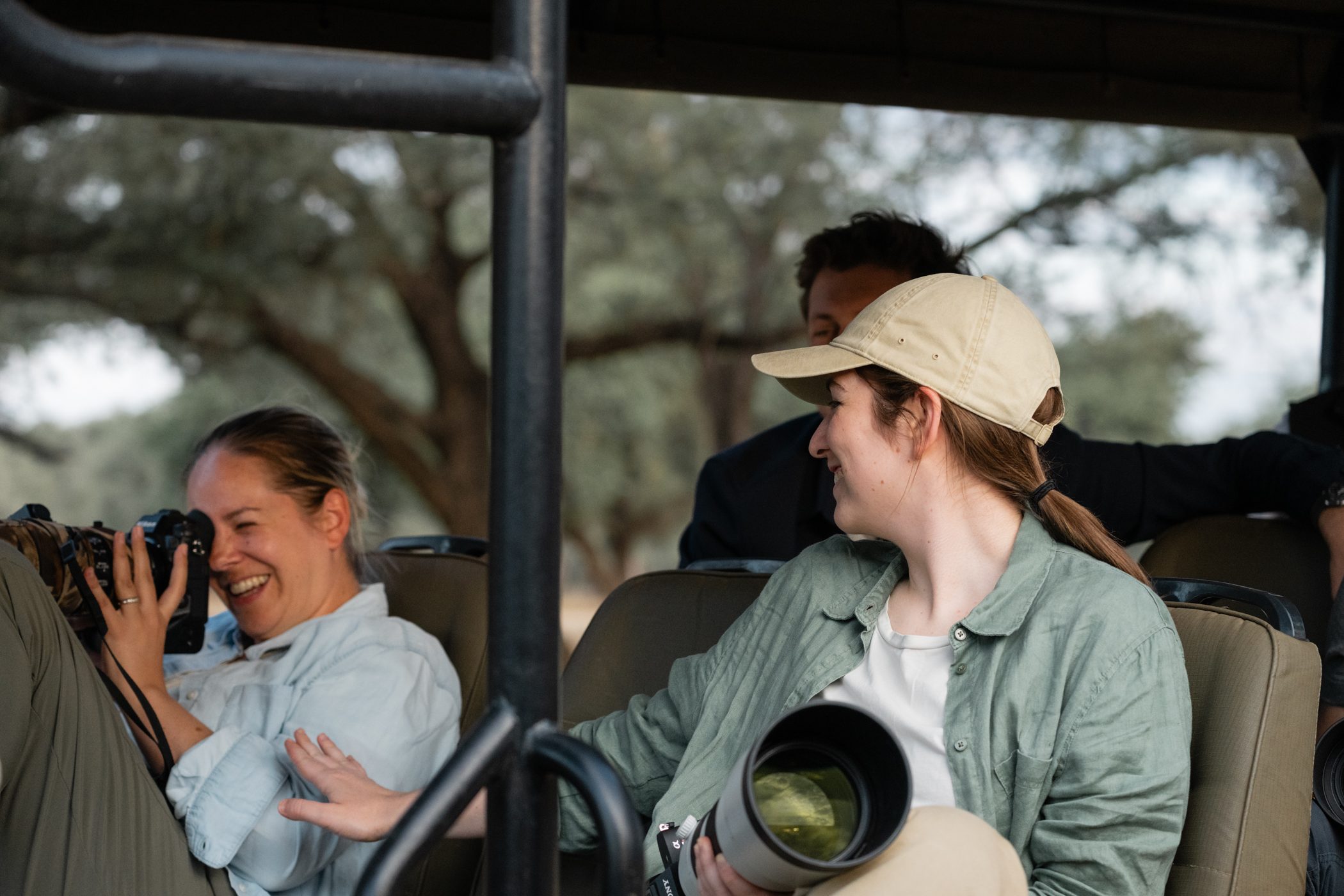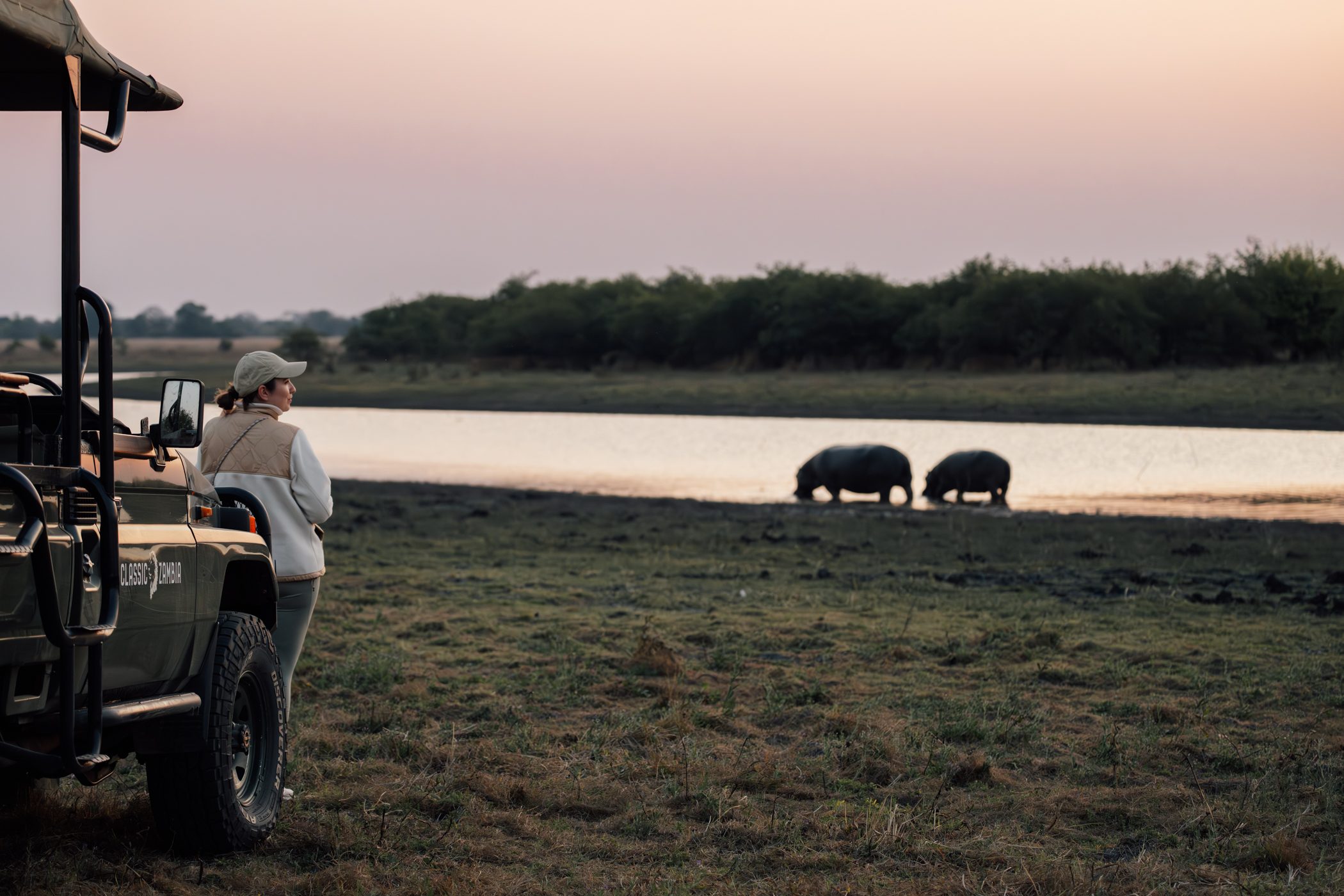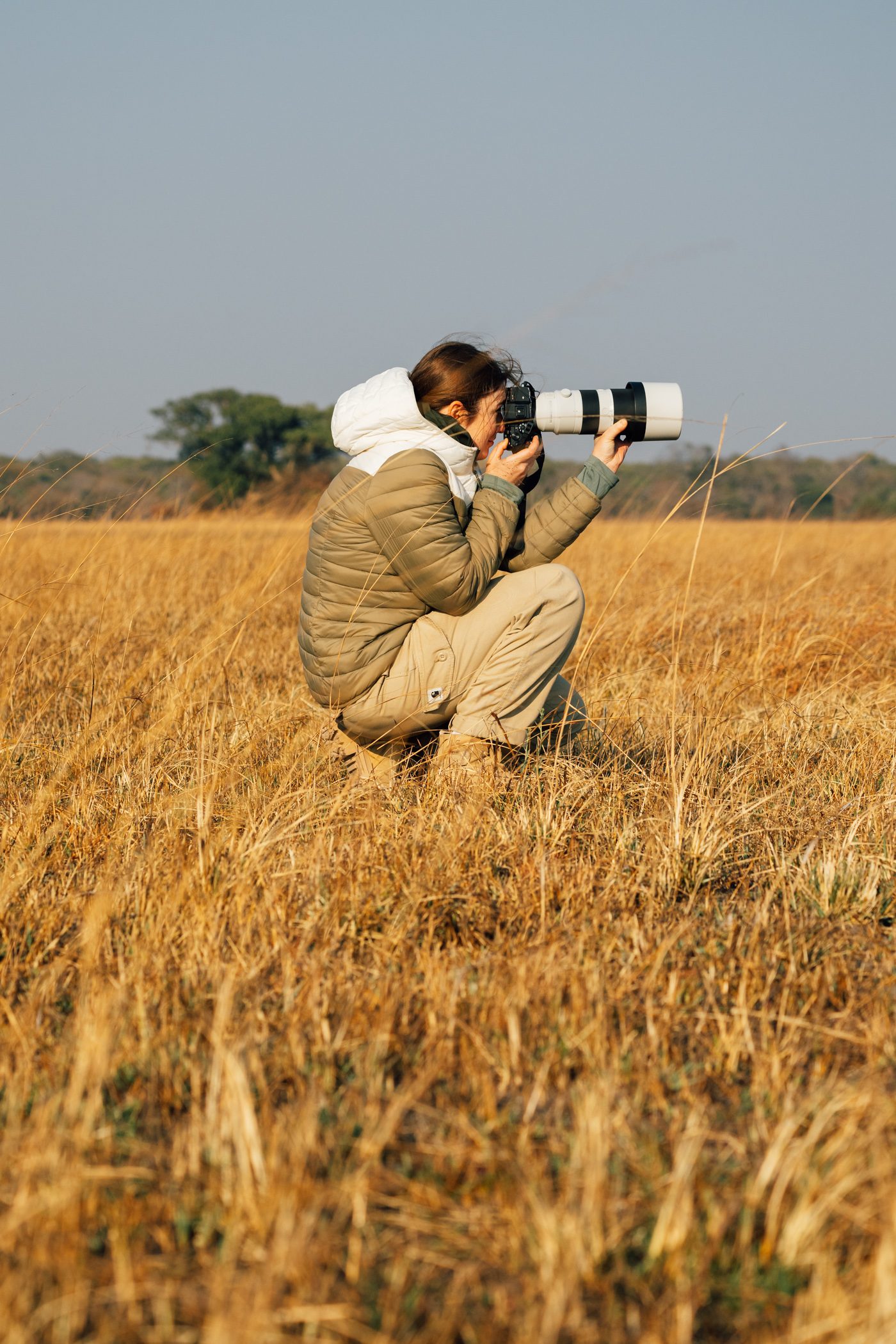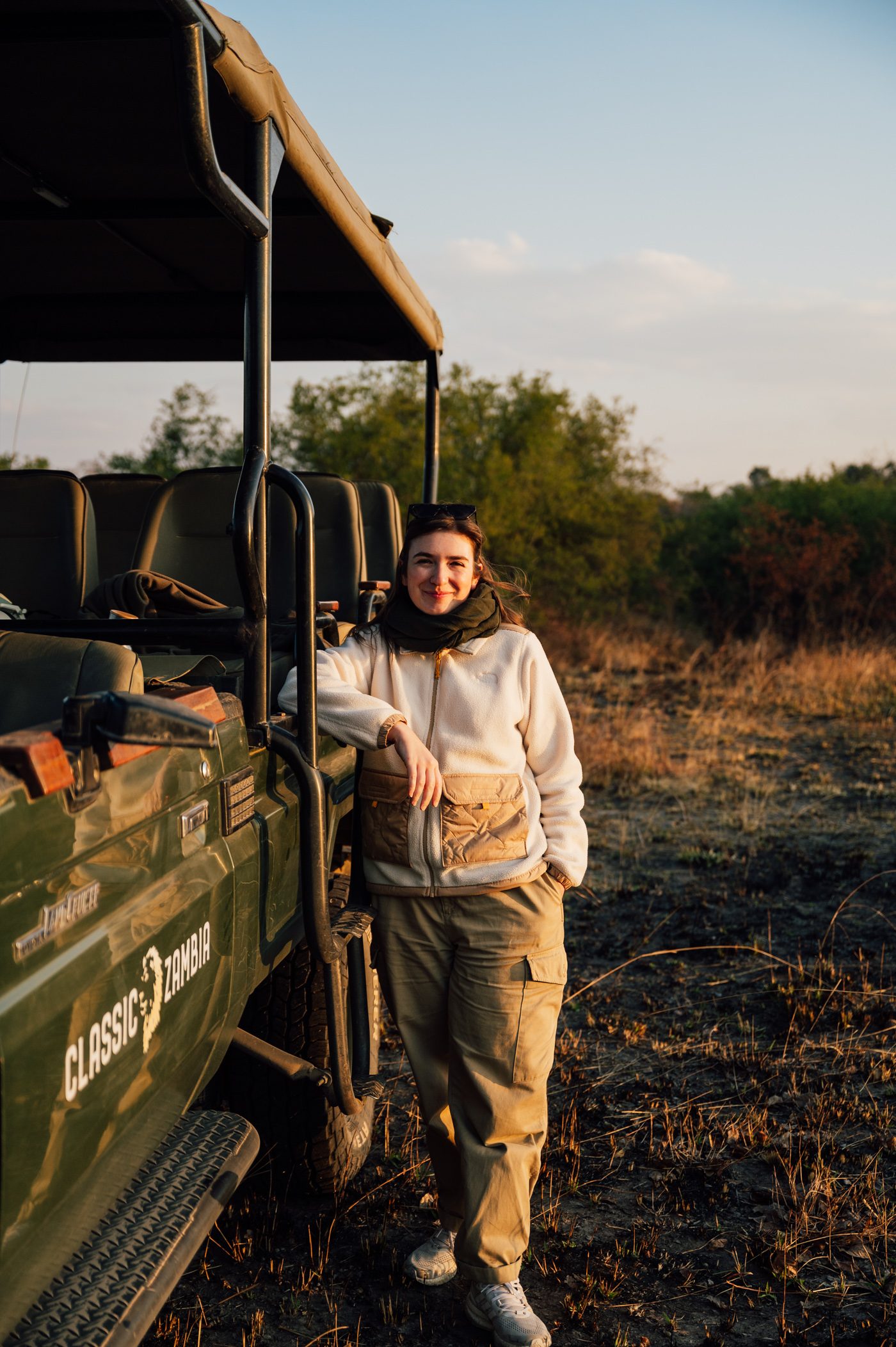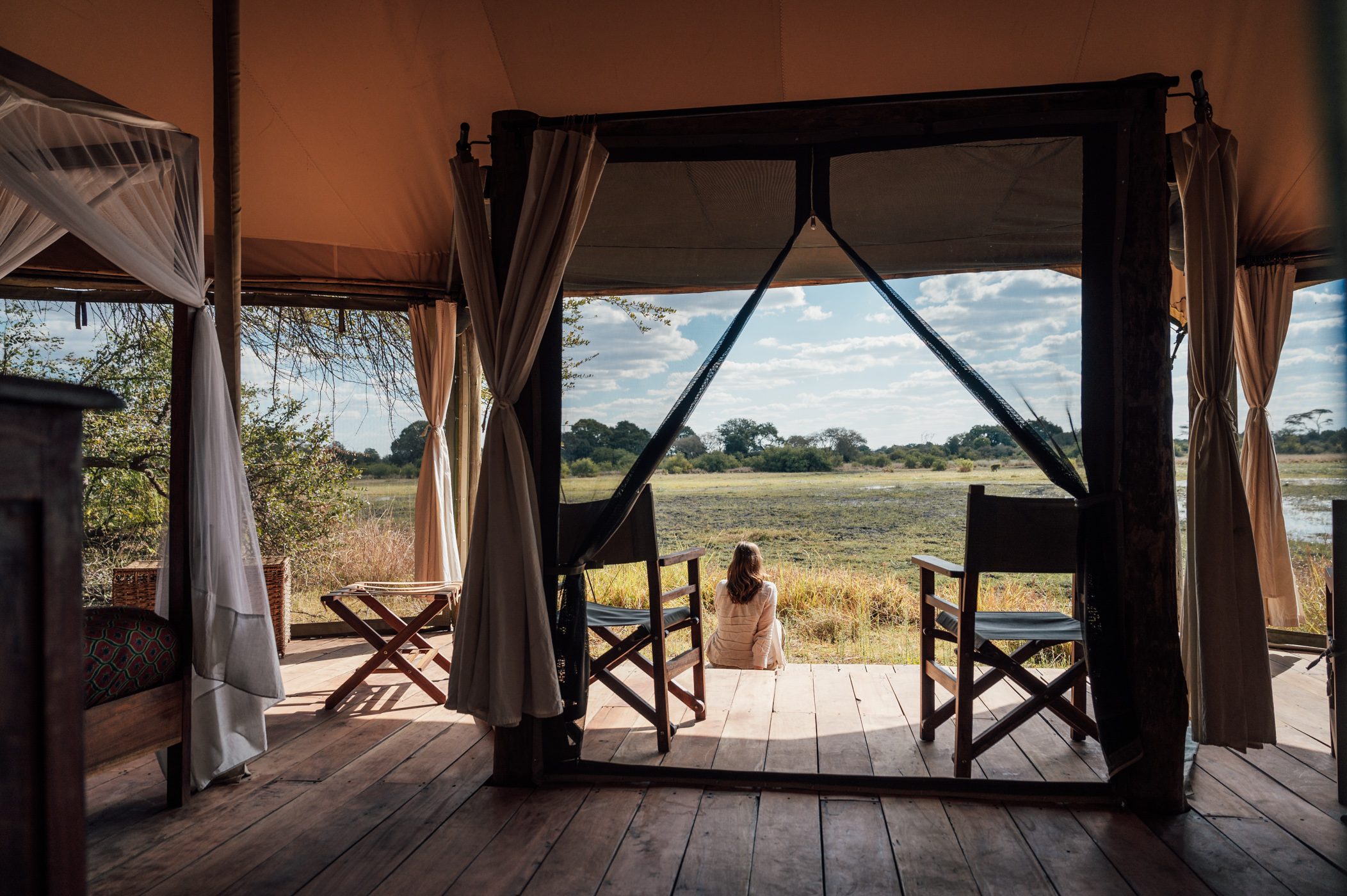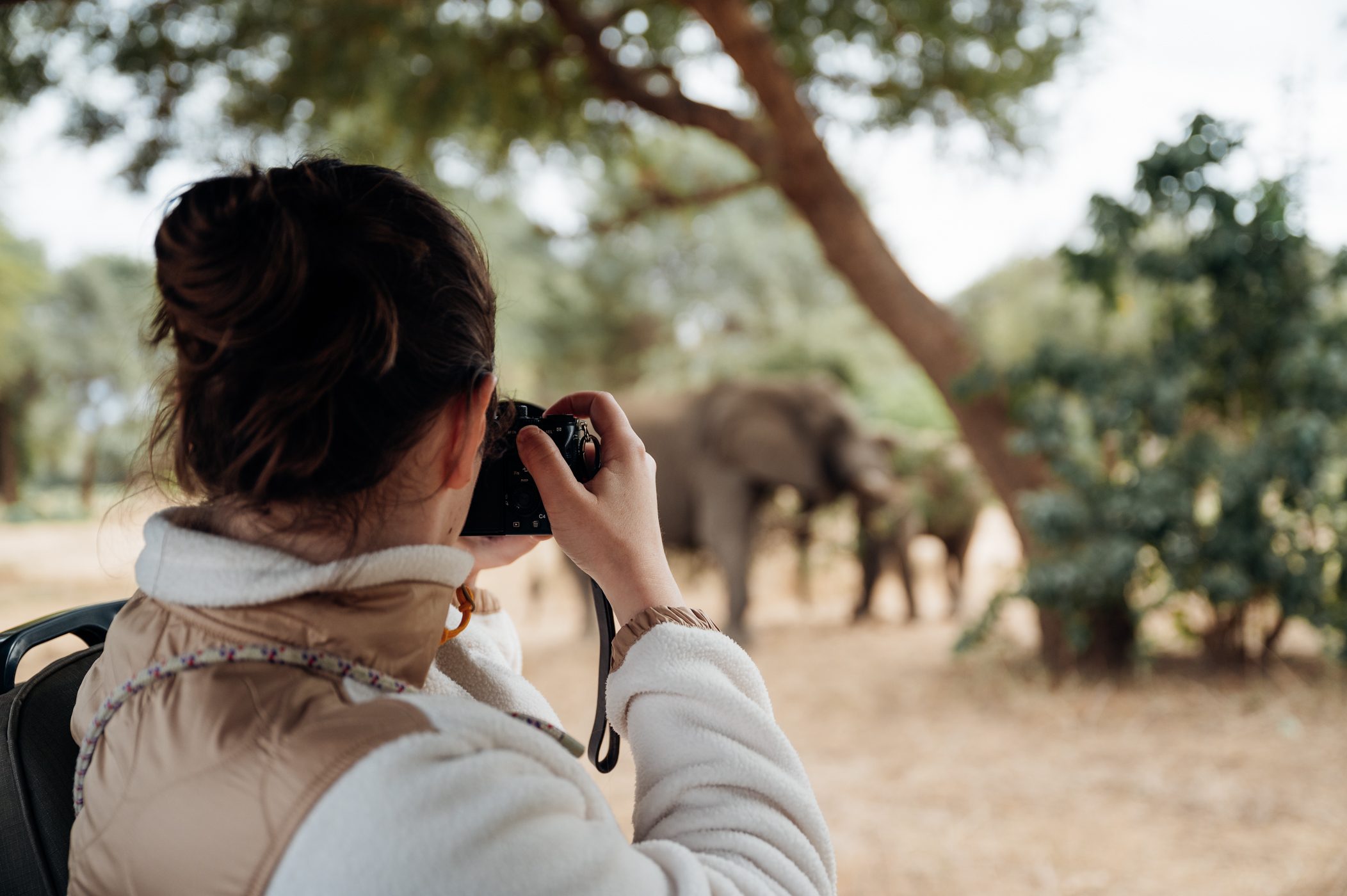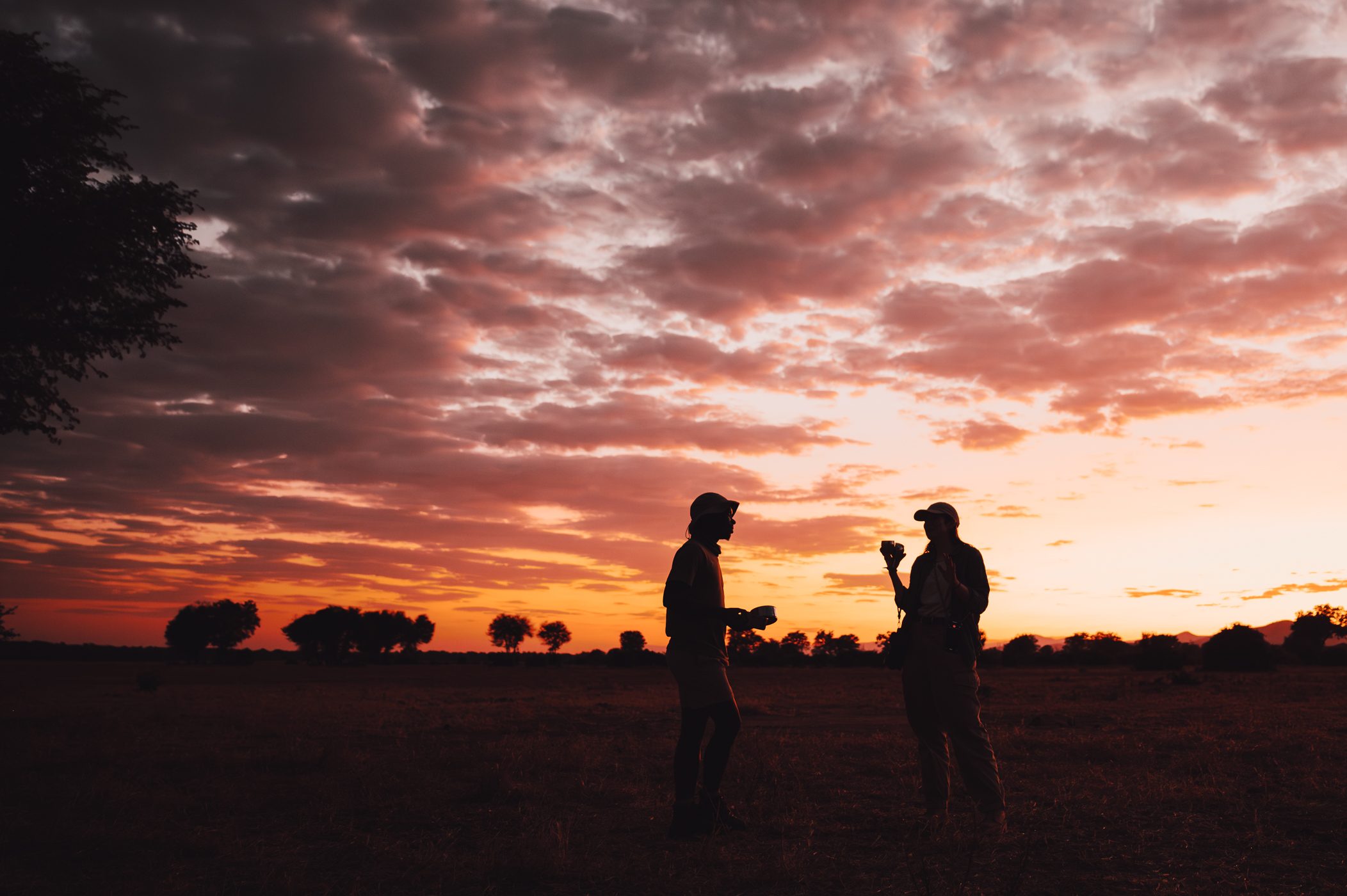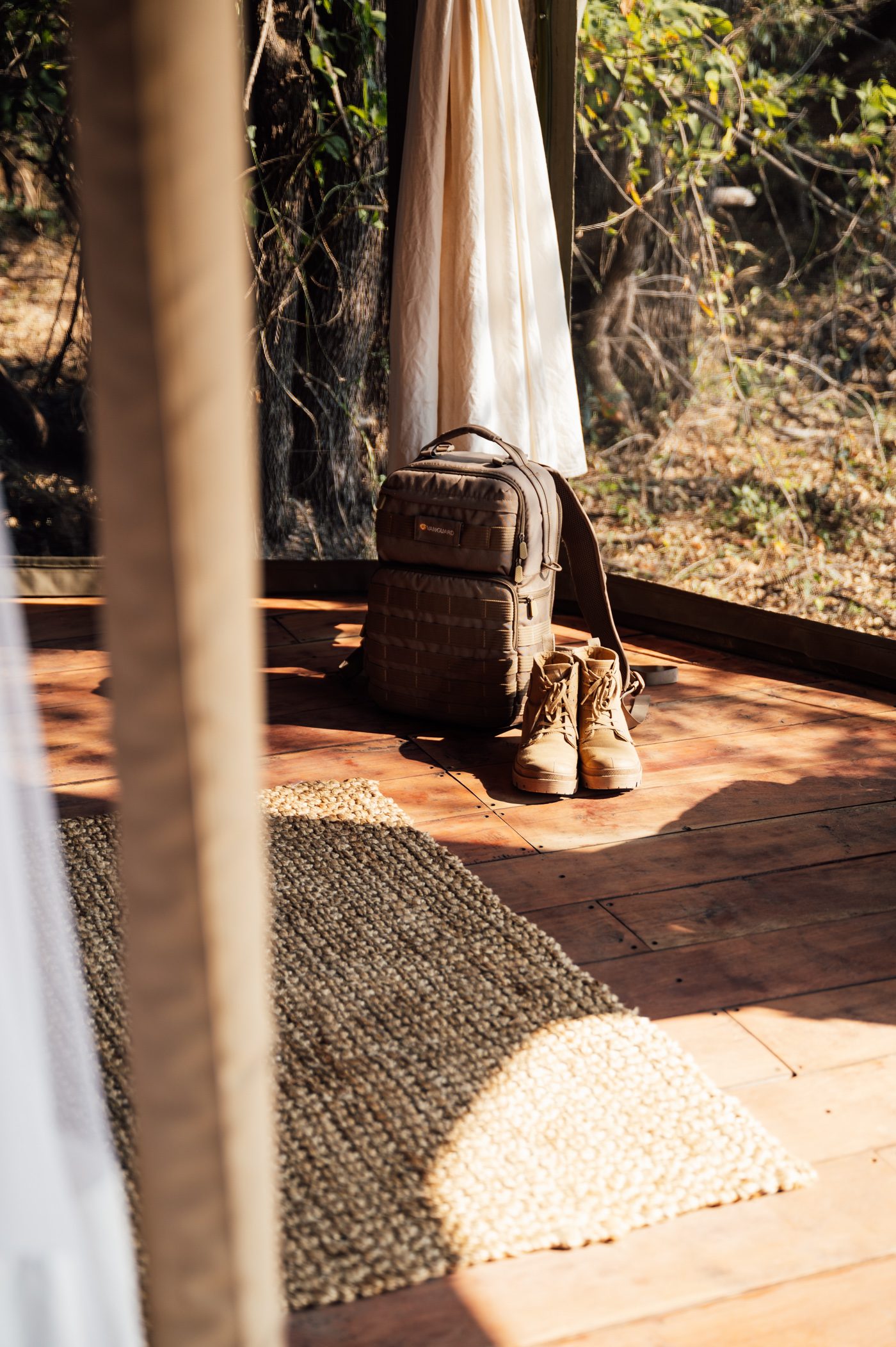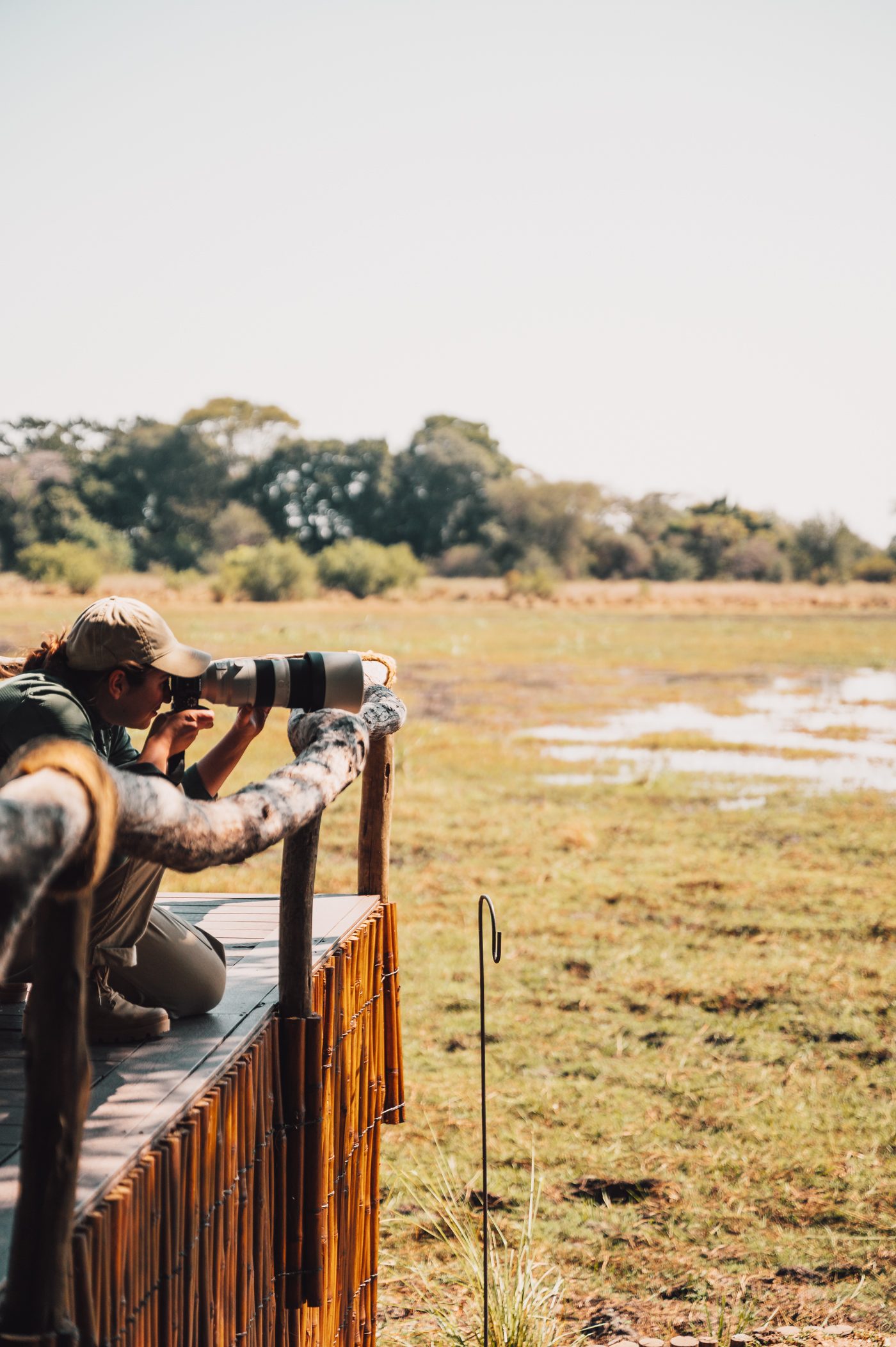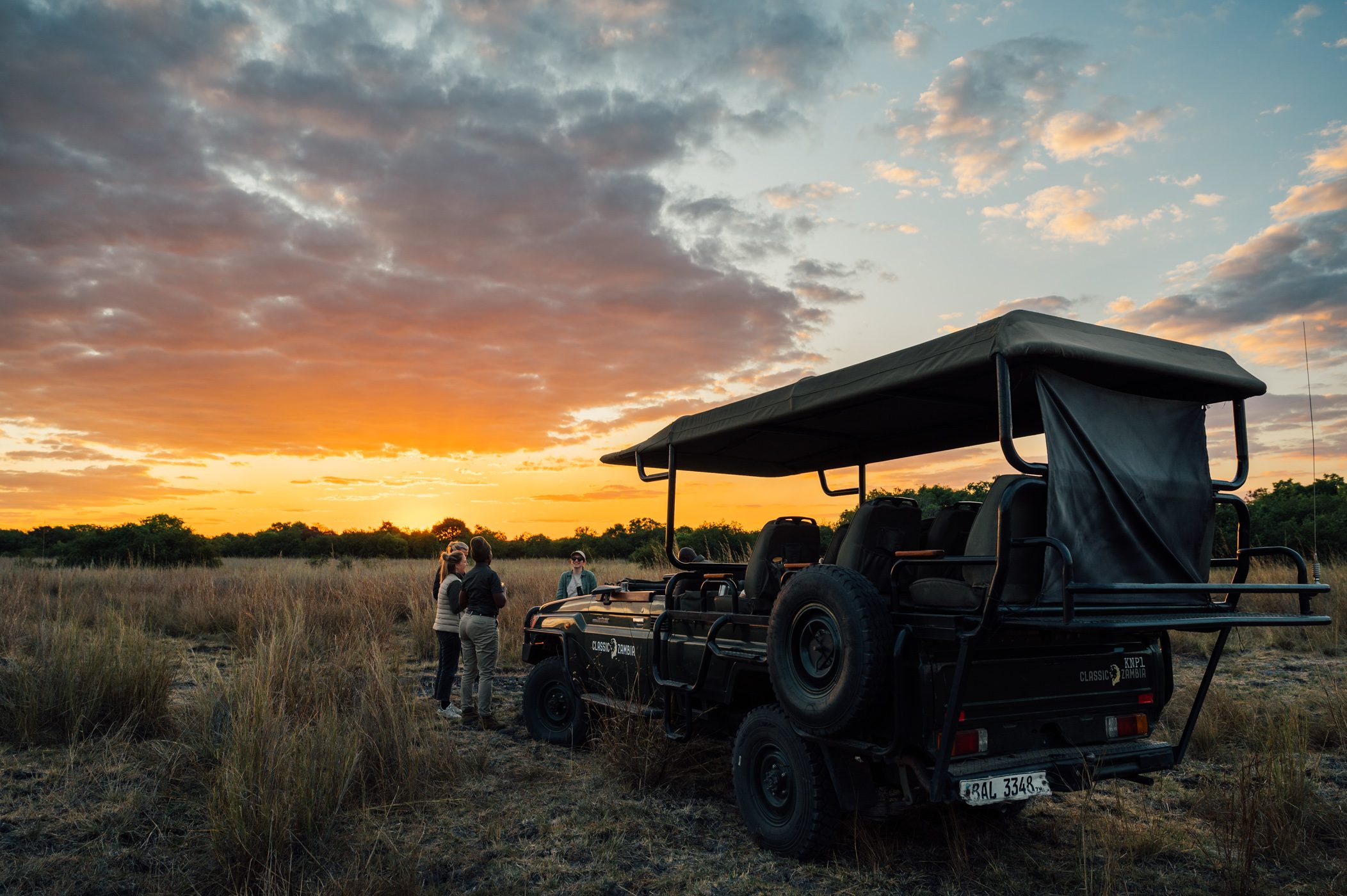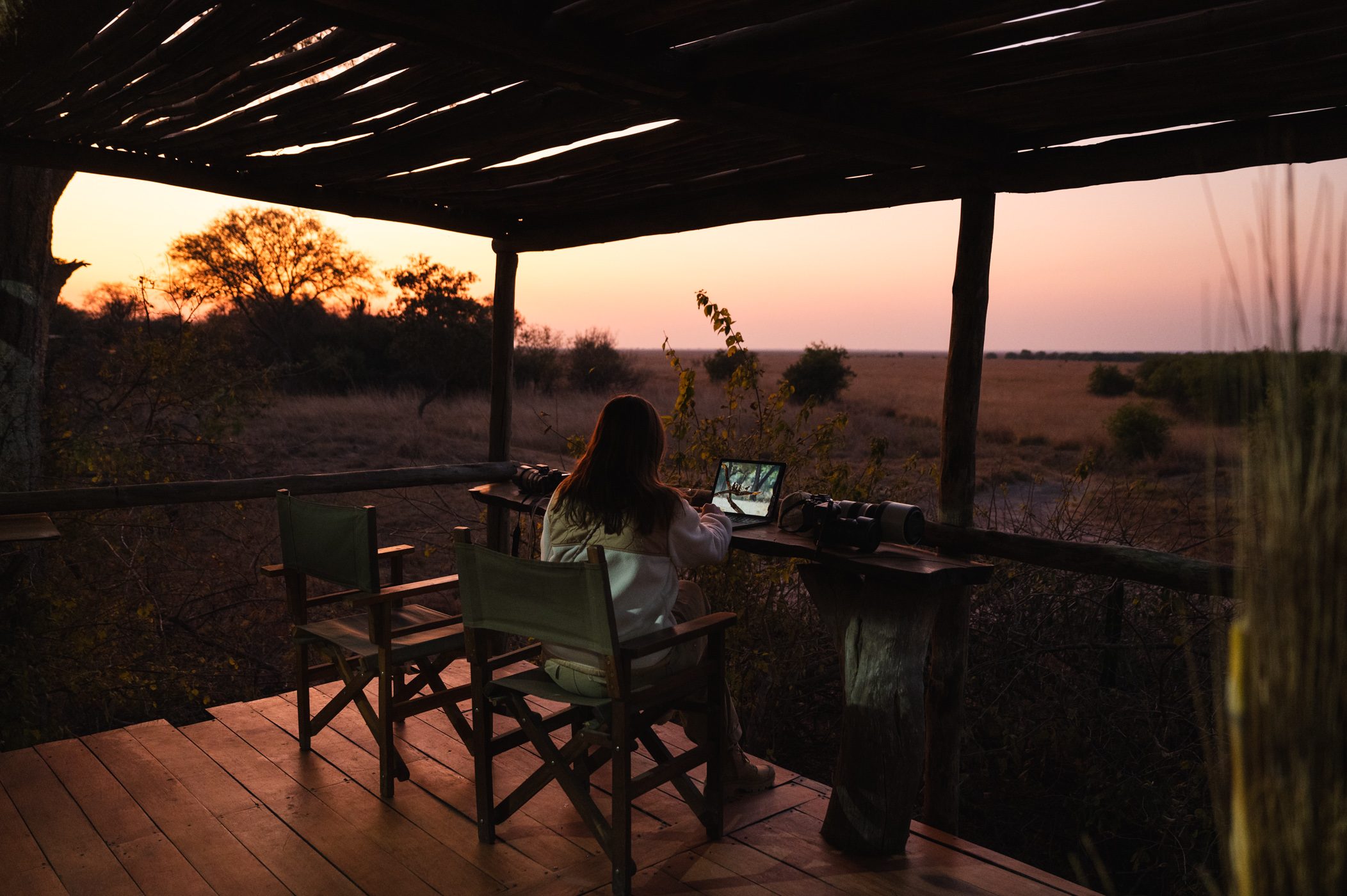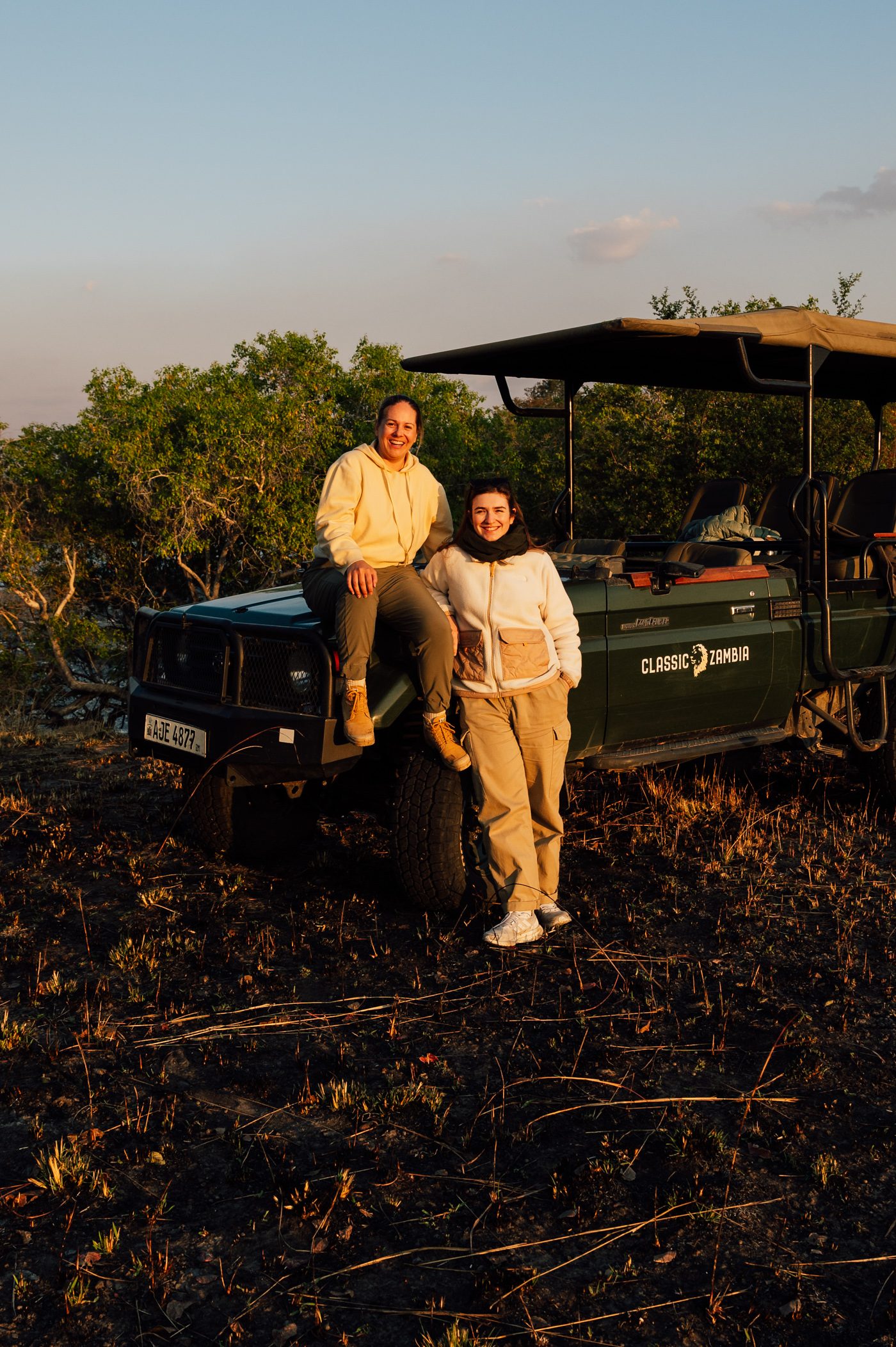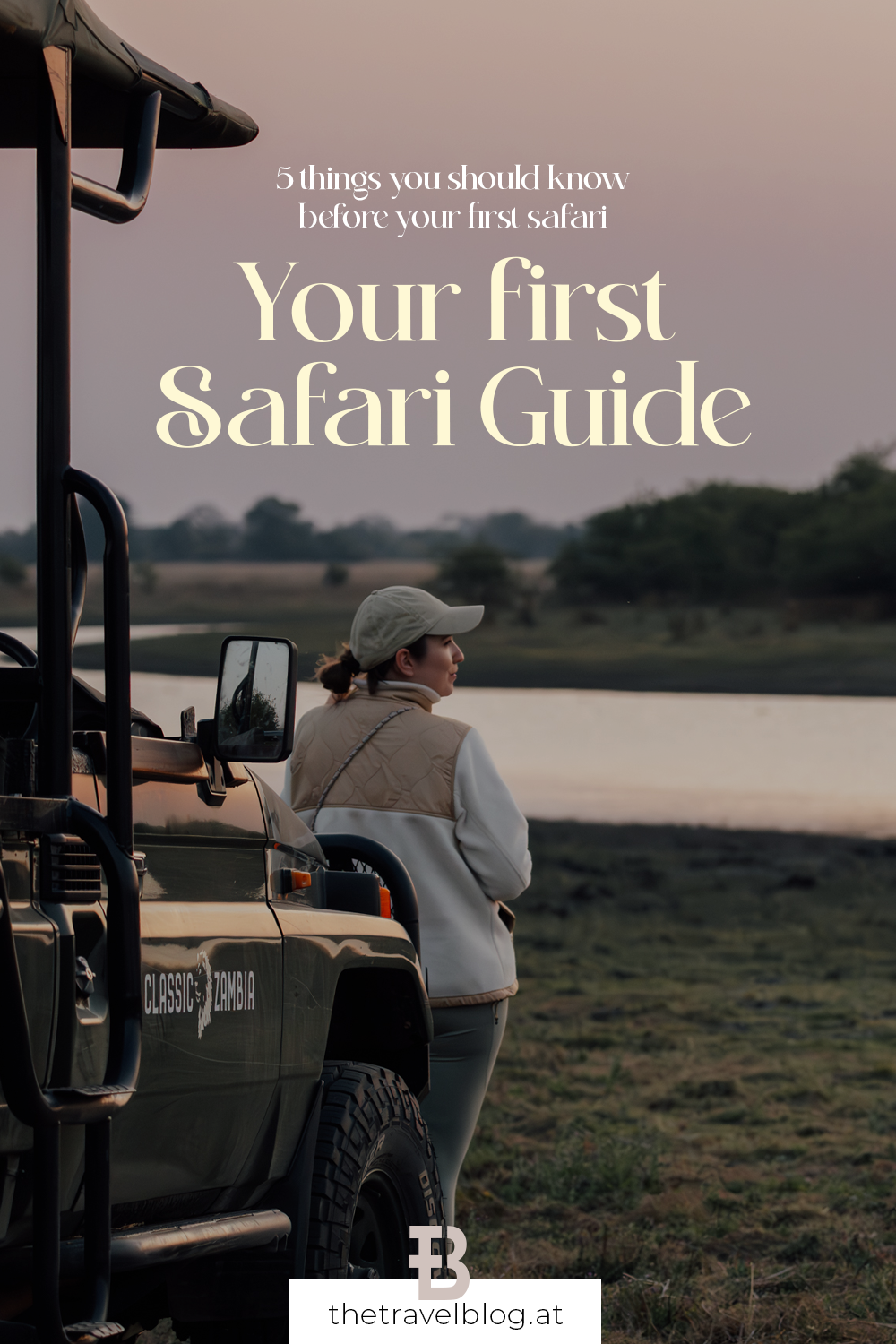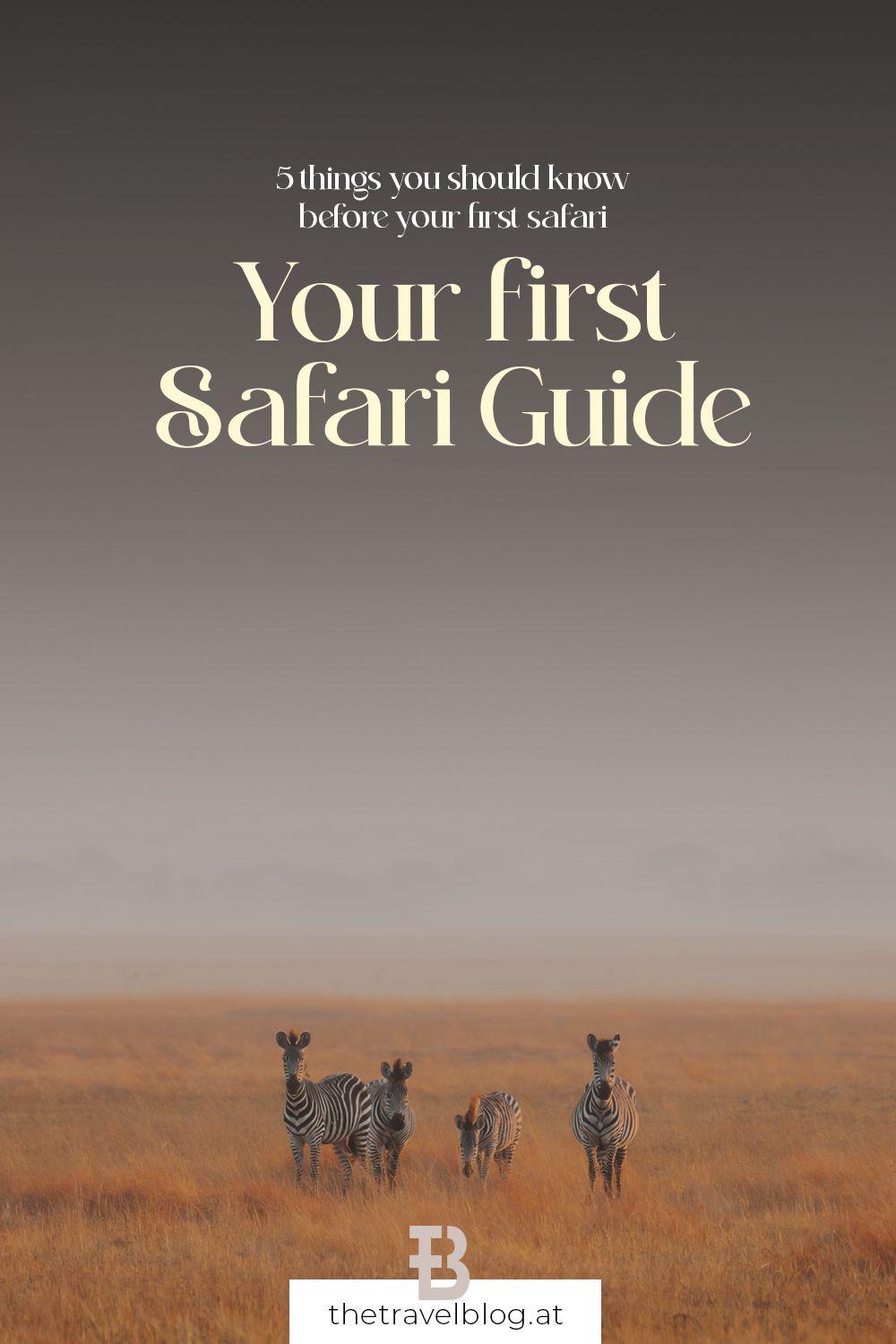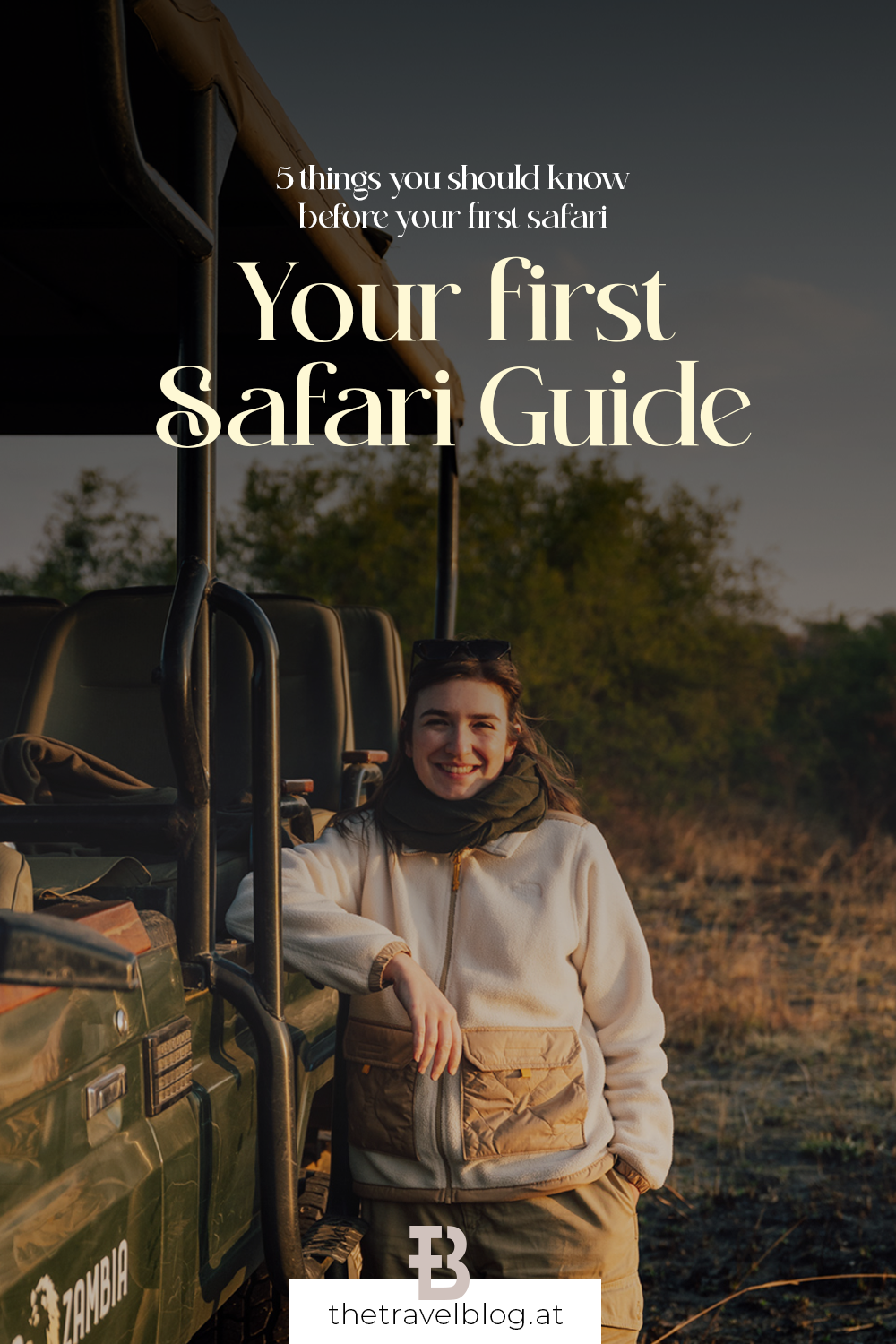Our recent trip to Zambia was different in many ways. But one significant change was that we were joined by a first-time safari traveller – a friend and colleague – and now safari fan Kady Kirchmayr. As experienced Africa traveller you see things differently, so it was (literally) eye-opening to see a safari from the perspective of a fresh set of eyes again.
This article compiles a few interview questions we asked photographer & social media strategist Kady Kirchmayr after her first trip to subsaharan Africa, so we could also help other safari beginners to prepare better for these often once-in-a-lifetime trips!
After the interview you’ll find our most important top 5 tips for your first safari.
Kady, what would you have liked to know before you first came on safari?
How to best prepare mentally
Kady: “My first safari trip is probably quite unlike how most people start off – Zambia isn’t really a ‘firstie’ destination. I’m afraid I’m spoiled for life now. What really helped was having somebody with me who’s done this whole thing before – it makes it easier to keep your chill when you’re about to use the outdoor toilet at night for the first time, despite all the rustling and hippo calls right outside the tent.”
How well you’ll be taken care of
Marion: “So what was the most surprising thing you noticed at first?”
Kady: “I did a lot of research beforehand, both by asking Marion and also via blog posts, podcasts etc. But what I truly wish I had known beforehand is how well taken care of you are at camp. Everything is organized around you, you just have to show up – absolutely luxurious.”
Being off the grid
Marion: “Speaking of luxuries. How did it feel to be off the grid completely without internet?”
Kady: “Oh, how great it is to be off the grid. That’s quite specific to the safari we went on with Classic Zambia, but man, did it feel good not to think about social media, e-mails & so on for such a long period of time. I totally lost track of time while I was there, no idea what day it was, just glorious.”
Freezing our butts off (a bit)
Marion: “How about the climate? We travelled to Zambia in July, which is winter in the Southern Hemisphere. Did it surprise you how cold it can get?”
Kady: “What I knew but didn’t put enough emphasis on is the fact that the temperature differences between night and day can be incredibly steep, depending on the season. So do pack that beanie and those thin gloves if you’re traveling in winter.”
What you don’t need to pack
Marion: “I think that was partly my fault as well! During our last Zambia trip it was not as cold as this time around. We really got caught in a bit of a cold front! Anything else you were missing from your luggage or didn’t use at all?”
Kady: “What I also didn’t realise is that so much of what you need in terms of toiletries is provided by the camps, from shampoo and conditioner to body lotion. Next time I won’t bring my shower gel and save a bit of weight that way.”
The daily safari rhythm
Marion: “Let’s talk about that safari rhythm, how did the daily 5:30 wake-up call make you feel? Any sleep deprivation?”
Kady: “Honestly, I didn’t know how much I’d love that daily safari rhythm, getting up at 5:30, having breakfast around the fire and starting off on game drive at around 6:30. Once you get back at around lunch, you get a bit of rest and respite before going off again on your afternoon activity, usually including a sundowner – man those sundowners were good! Then back for dinner and off to bed rather early, your next early wake-up call is waiting. Everything was organized so incredibly seamlessly, it was amazing.”
Safety: In terms of wild animals
Marion: “And the holy grail: Safety! How did you feel with all those wild animals around?”
Kady: “Another thing I wish I had known before is that you’ll have regular animal encounters in camp – it all depends on where you’re staying of course, but at the Classic Zambia destinations we had everything from antelope, hippos, elephants and baboons to lions and leopards stop by. It’ll test your nerves a little if you’re at dinner and suddenly there’s alarm calls for a leopard at camp, but it’s all the more exciting when you see that leopard again next morning. And you’ll feel safe during the whole time, because you’re in the hands of absolute professionals who do this every day.”
No Wikipedia at hand
Marion: “Any final things you wish you had known? Something unexpected?”
Kady: “I also wish I had looked up a bit more about the fauna and flora beforehand – in a camp without internet you won’t be able to check any facts quickly. Your guides will tell you everything, of course, and they’re SO knowledgeable, but it would have been great to know a little more beforehand so that I could get the hang of what the guides were telling us just a little bit more quickly. “
5 tips for safari beginners
Pack light: What to bring on a safari?
Safari camps provide complimentary laundry services. And bush planes only take between 15-20kg luggage per person maximum. So when it comes to your day-to-day clothes you really only need 2 pants, 3 t-shirts (long & short sleeves), 2 sweaters (I prefer hoodies for some extra warmth on top), maybe 1 or 2 linen shirts and 3 pairs of socks. The only thing that you’ll have to wash yourself is your underwear, so you can bring a few more sets. Camps usually also provide laundry detergent for this purpose (even in the most basic of tents).
Cameras & photos: How to take great photos on a safari?
In many cases you’ll be fine with your phone to capture some special moments and wildlife encounters. But don’t expect those perfect looking wildlife shots without the right gear. For photography enthusiasts that means not only packing a camera with interchangeable lenses, but most importantly a long tele zoom lens (I recommend at least 100-400mm or 200-500mm, Zoom lenses do the trick and are not as expensive as prime lenses).
Mosquitoes & other bugs: How bad is it really?
That’s a question that highly depends on location and seasonality. During dry season and winter there’s much less bugs than if you travel in the so called “green” season (rainy season), when it’s all lush and moist.
In any case you want to be prepared by following some basic rules: Dress in neutral safari colours (overly light or dark colours often attract bugs), use mosquito repellent with a high dose of DEET (often safari camps provide these, so inquire beforehand if you have to bring your own) and wear long sleeves and long trousers (especially during dawn and dusk and when you go on walking safaris). Do you need gators? Only if you go on treks for gorillas or chimps, not on regular walking safaris.
Budget: How expensive is it to go on a safari?
That’s a question that is really hard to answer with one generic number, but generally speaking: more expensive than many people anticipate. A proper safari (that means: expertly guided game drives, all inclusive bush camps INSIDE national parks or game reserves) can easily cost around 500 USD per day per person upwards.
Cheaper options are either self drives (fine if you just want to get a very little first glimpse or if you don’t care about specific wildlife encounters and are fine with just nature immersion and seeing whatever crosses your path) or day trips where you don’t stay inside the National Park (also okay for a start). But the true safari feeling really only happens if you’re traveling more remotely and stay inside the parks for a few days. And that luxury alone makes things become considerably more expensive (I’m not even beginning to speak of plunge pools, wifi and AC in the room – that’s where things start costing 1,500 USD per person per day and beyond).
And that’s just the nightly fee for the camp – you have to also add transfers (international flights and internal transfers – either on ground or by bush plane) and national park fees and conservancy levies. A proper safari is quite an investment and it’s safe to say you shouldn’t compare this to a beach vacation or something a lot less expensive.
Safety: From political stability to transmittable diseases
That’s always the biggest concern when it comes to going on a safari for the first time and it’s a big question.
First and foremost safety always comes down to personal assessments and the less experienced you are, the more unsafe you’ll feel at the beginning. The first night sleeping in a tent you’ll probably not know what all the noises are, how bush babies can jump around on your roof and sound like crying human babies or that hippos come out to graze at night – maybe right next to your tent. Wildlife and dark nights can feel scary at first, but you’ll quickly get used to this feeling and hopefully will come to embrace it.
Other safety concerns include general safety (criminal activities, political stability, etc.) and can not be easily explained for all safari destinations globally, but generally speaking the bush is always much safer than any city. If you go on safari you can also manage to entirely avoid being in cities altogether and travel quite safely. We would always recommend to book via certified safari operators who can best advise you where to go and will also organise safe & reliable transfers and so on.
Other risk factors are diseases transmitted by insect bites (Malaria, Dengue, etc.), which is something that can never be fully eliminated, but largely managed (see tips about mosquitoes above and consult a medical expert before you go on a trip to make sure you have all the vaccines and prophylaxis you need).
Is it safe to got on a safari for a woman travelling alone? My personal answer would be 100x yes, but of course I travel in a way that maximises safety. I don’t go out in the streets in a city alone at night and in the bush there’s really no risk at all when you stay in professionally operated camps. But I also know women overlanding alone in Africa and that’s a totally different ball game, which might end in some uncomfortable encounters. So again, it really depends on where you’re going and how you’re travelling. On a normal safari I would say there are zero safety concerns as a woman travelling solo.
One final remark on safety and security concerns is regarding LGBTQIA+ safari travel, which is a complicated topic as many African countries still ban any sort of homosexual or non-binary partnerships. But despite the political situation in these countries the safari industry is tailored towards international guests and therefore a bit independent of those rules and regulations. So once you’ve left the city and arrived in the National parks and camps you can usually be at ease. It’s best to consult a professional safari tour operator to get tips which countries and camps are best suited for LGBTQIA travels (including sleeping together in king beds and holding hands and kissing during sundowners ☺️).
Kady: “You may think that the big things will be the most exciting – the lions and leopards and elephants. What you don’t know is how much the little things will excite you – the subtle changes in landscape, the tiniest birds, the ant lions and elephant shrews, the faraway calls of hyena in the early mornings, that tiny ping of pride as you recognize a certain species before your guide tells you about it. You‘ll love the increasing warmth of the sun on your face as it rises, the soft breeze that carries the smells of nature with it, that first sip of cold ginger ale after you climb out of the car for your sundowner. It‘s all part of the magic.”
Save and pin this post for your first safari
Interested in your first safari? Read our guide for which country to choose for your first safari here.

